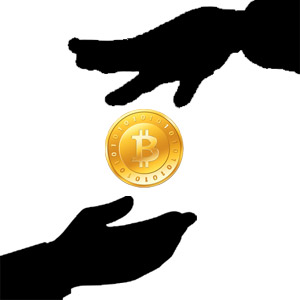 NEWS
NEWS
 NEWS
NEWS
 NEWS
NEWS
![]() BitPay announces that the bitcoin transaction processor has exceeded 10,000 successful transactions with zero cases of payment fraud. For a regular financial institution this might be news, but as you’ll see, with Bitcoin fraud is somewhat difficult.
BitPay announces that the bitcoin transaction processor has exceeded 10,000 successful transactions with zero cases of payment fraud. For a regular financial institution this might be news, but as you’ll see, with Bitcoin fraud is somewhat difficult.
Financial transactions on the Internet have always come with a risk—and a sensation that that risk is higher online than it is in the real world. In the HackANGLE section here at SiliconANGLE we’ve seen coverage for malware that targets consumers, spam that phishes out details of financial records, and many, many scams. Fraud and fake transactions are so common with credit cards that even PayPal has a comprehensive (and sometimes overbearing) policies for dealing with chargebacks and other issues that crop up.
Bitcoins transactions extremely difficult to fake (if not sometimes impossible at the point of practicality.) This is due to the nature of how bitcoins are traded. When a transaction is made the peer-to-peer network of everyone trading Bitcoins is updated as to the trade and the block chain is updated, it can take up to 10 minutes for the first block to be confirmed but only about an average of an hour before it’s practically impossible to reverse (the time it takes for about 6 confirmations.) With each consecutive confirmation from the network it becomes even harder to reverse and after 6 it’s essentially a done deal.
Credit cards, on the other hand, can have a chargeback occur sometimes within a span as lengthy as three months. Even in this era of fast Internet and even faster money, a one hour window is still extremely small.
Due to the anti-spoof nature of bitcoins, and the particularly niche community that they sell through, BitPay will most likely see a long term into the future with zero transaction fraud.
The primary way that bitcoins can be used as part of a “fraudulent” transaction would be where the bitcoins themselves were obtained via fraud or stolen from another party. The transaction with BitPay will be legitimate; but the way in which the bitcoins were obtained by the transacting party could have been less-than-honest.
Companies may show interest in Bitcoin due to the “no chargebacks” option
It’s impossible to “chargeback” bitcoins after a transaction has occurred. As the same underling code that makes bitcoins extremely difficult to spoof or defraud another person with—the large consensus effect of trading a bitcoin across the network—also means that it’s impossible to come back and say, “I didn’t make that trade, not really!”
According to the Cybersource 2012 Online Fraud report, quoted by BitPay, one in 167 transactions across global credit networks turns out to be fraudulent—when compared to zero across 10,000 (totaling almost $3 million in total) that’s quite a staggering difference.
Due to this nature, outfits such as BitcoinStore have cited Bitcoin as greatly reducing costs over using credit to make transactions. (BitcoinStore also uses BitPay as their payment processor.)
“We have a good grasp of all the edge conditions and scalability issues that a typical company would face integrating bitcoin payments, since we’ve done this over 10,000 times,” says Anthony Gallippi, co-founder and CEO of BitPay. “We have some tremendous expertise in this area. This expertise puts our business solutions well ahead of all others in the marketplace.”
Recently, BitPay received a funding round of $510,000 to continue to do what they’re doing and more and more companies continue to turn to bitcoin to get the job done.
Support our mission to keep content open and free by engaging with theCUBE community. Join theCUBE’s Alumni Trust Network, where technology leaders connect, share intelligence and create opportunities.
Founded by tech visionaries John Furrier and Dave Vellante, SiliconANGLE Media has built a dynamic ecosystem of industry-leading digital media brands that reach 15+ million elite tech professionals. Our new proprietary theCUBE AI Video Cloud is breaking ground in audience interaction, leveraging theCUBEai.com neural network to help technology companies make data-driven decisions and stay at the forefront of industry conversations.